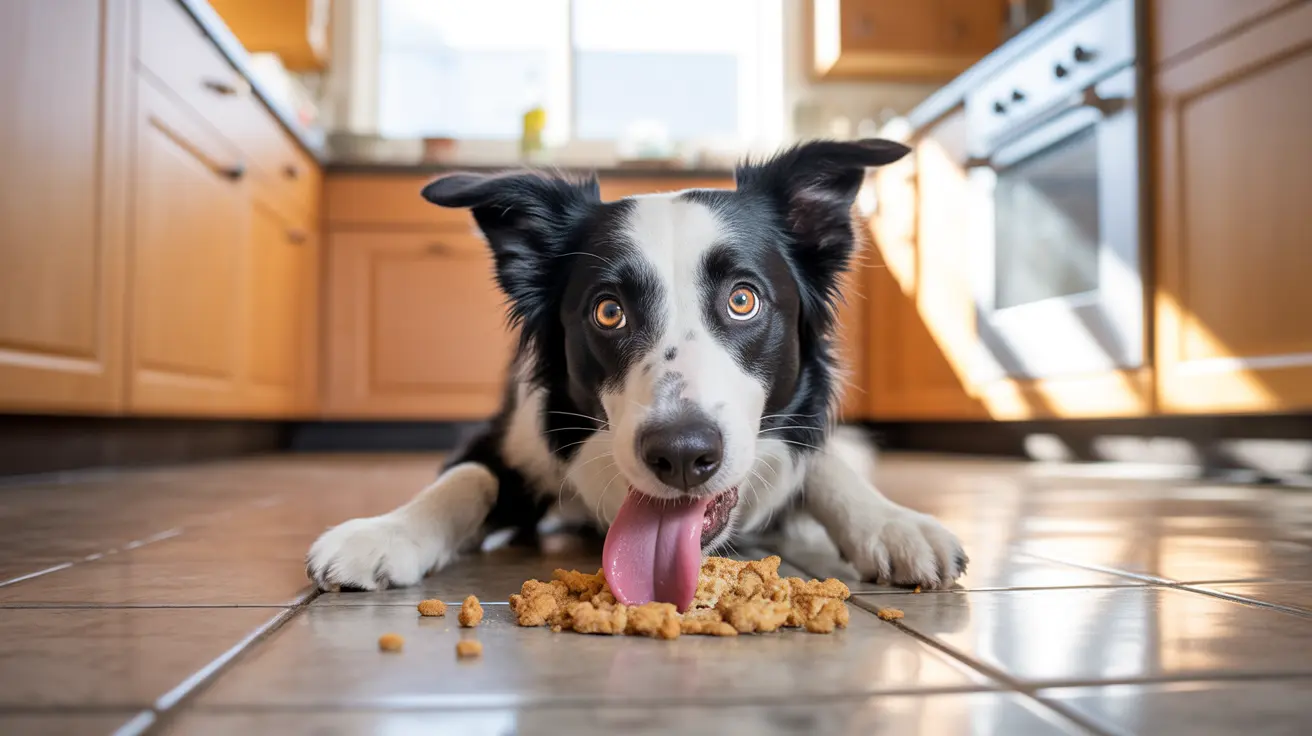If you've ever caught your dog enthusiastically licking the floor, you're not alone. This peculiar behavior is surprisingly common among our canine companions, and while it might seem strange to us, there are various reasons why dogs engage in floor licking. Understanding the root cause is essential, as it can range from harmless exploration to a sign of underlying health issues.
In this comprehensive guide, we'll explore the various reasons behind floor licking behavior, help you determine when it's cause for concern, and provide practical solutions to address this habit.
Common Reasons for Floor Licking Behavior
Food and Scent Investigation
Dogs have an incredibly powerful sense of smell - up to 100,000 times more sensitive than humans. Even when floors appear clean to us, your dog might detect microscopic food particles or interesting scents that warrant investigation. This type of occasional licking, especially in areas where food is prepared or consumed, is typically normal behavior.
Natural Exploratory Behavior
Dogs explore their world primarily through their mouths and noses. Licking the floor can be a way for them to gather information about their environment, including who or what has been in the space recently. This investigative behavior is usually harmless when done in moderation.
Medical Causes of Floor Licking
Gastrointestinal Issues
Research has shown a strong correlation between excessive floor licking and gastrointestinal problems. Conditions such as inflammatory bowel disease, acid reflux, or pancreatitis may trigger this behavior. Dogs might lick the floor to induce saliva production, which helps neutralize stomach acid and provide relief from digestive discomfort.
Neurological and Systemic Conditions
Sometimes, floor licking can indicate neurological issues or systemic conditions like Cushing's disease. These medical conditions can create compulsive behaviors or cause physical discomfort that leads to excessive licking.
Behavioral Triggers for Floor Licking
Stress and Anxiety
Dogs often use licking as a self-soothing mechanism when feeling anxious or stressed. Changes in routine, loud noises, or separation anxiety can trigger this behavior. The repetitive action of licking releases endorphins, helping to calm your pet.
Boredom and Attention-Seeking
Insufficient mental or physical stimulation can lead to repetitive behaviors like floor licking. Some dogs learn that this behavior attracts attention from their owners, even if it's negative attention, reinforcing the habit.
When to Be Concerned
While occasional floor licking is normal, certain patterns should raise red flags:
- Sudden onset of excessive licking
- Licking accompanied by other symptoms like vomiting or diarrhea
- Compulsive licking that interrupts normal activities
- Signs of distress while licking
Solutions and Prevention Strategies
Environmental Management
Keep floors clean using pet-safe cleaning products, and ensure food spills are promptly cleaned up. This reduces the temptation for investigative licking and prevents ingestion of harmful substances.
Enrichment Activities
Provide plenty of mental and physical stimulation through:
- Interactive toys and puzzle feeders
- Regular exercise and playtime
- Training sessions
- Structured daily routines
Frequently Asked Questions
Why is my dog licking the floor even when it looks clean?
Dogs can detect microscopic food particles and scents that are invisible to humans due to their superior sense of smell. However, if the behavior is excessive, it could indicate an underlying health issue or anxiety.
Can excessive floor licking in dogs be a sign of gastrointestinal problems?
Yes, studies have shown a strong correlation between excessive floor licking and gastrointestinal issues. Many dogs diagnosed with GI problems showed improvement in licking behavior after receiving appropriate treatment.
How do I know if my dog's floor licking is caused by anxiety or boredom?
Anxiety-related licking often occurs during stressful situations and may be accompanied by other signs like pacing, whining, or panting. Boredom-related licking typically happens when the dog lacks mental or physical stimulation.
When should I worry and take my dog to the vet for floor licking behavior?
Consult a veterinarian if the licking is excessive, compulsive, or accompanied by other symptoms like changes in appetite, vomiting, diarrhea, or lethargy. Also seek help if the behavior suddenly develops or significantly impacts your dog's daily activities.
What are some effective ways to stop my dog from constantly licking the floor?
Start by ruling out medical issues through a veterinary check-up. Then, ensure proper cleaning of floors, provide adequate exercise and mental stimulation, and consider behavior modification training. For anxiety-related licking, work with a professional to address the underlying stress triggers.






